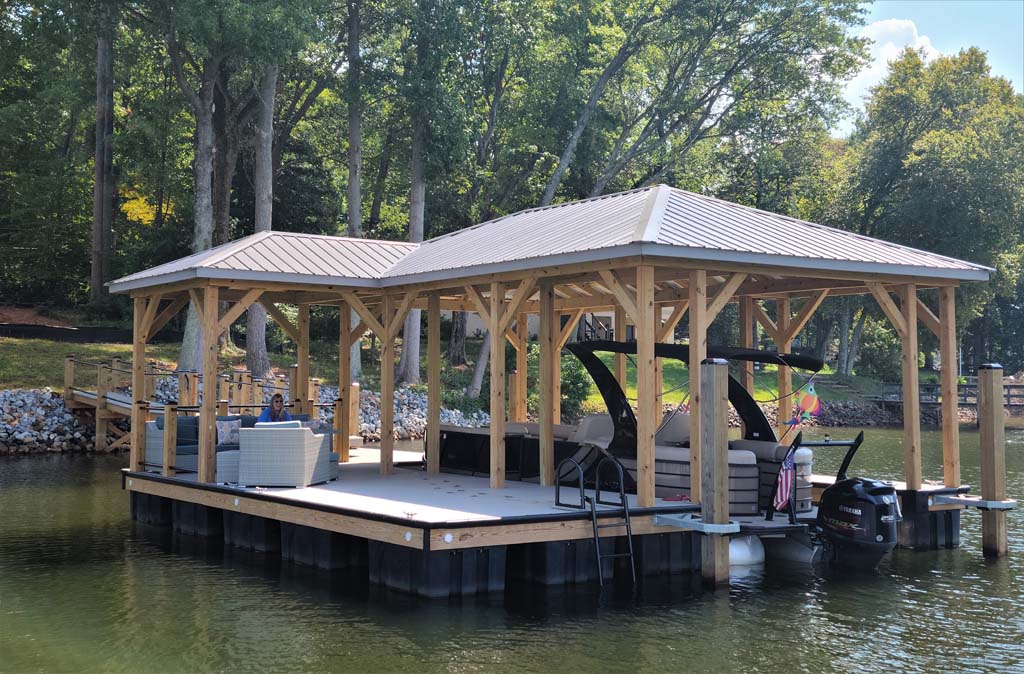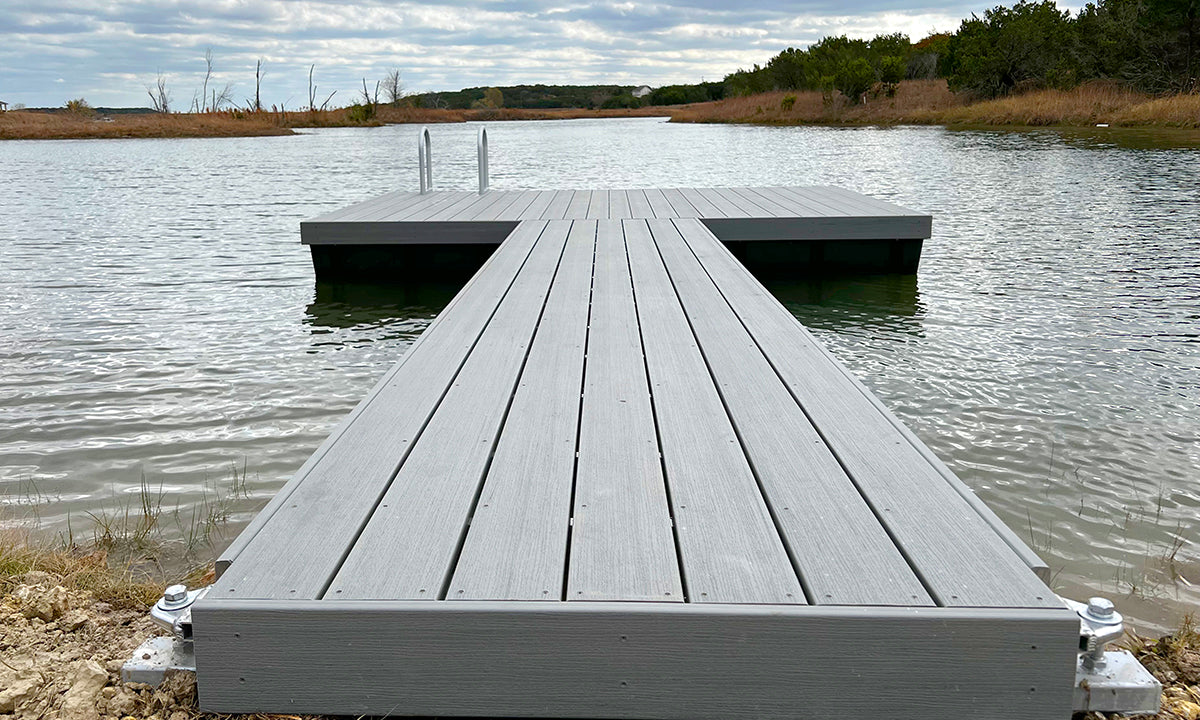Navigating the Options: Picking the Right Dock Company for Your Floating Dock Project
Navigating the Options: Picking the Right Dock Company for Your Floating Dock Project
Blog Article
Floating Docks: The Ideal Choice for Versatile Water Accessibility
Floating docks existing a compelling remedy for a selection of water accessibility requires, using versatility that goes beyond traditional mooring alternatives. The modular nature of floating docks facilitates customization, providing to details needs.
Advantages of Floating Docks
Floating docks offer numerous benefits that enhance water access for different applications. Their capability to drop and climb with transforming water degrees makes them particularly helpful in atmospheres with fluctuating trends or seasonal variations. This flexibility makes sure that vessels can easily moor without concern for the water's deepness, providing a reliable platform for leisure, industrial, and commercial uses.
Furthermore, floating docks are commonly built from long lasting products that resist rust, making them ideal for long-term usage in marine atmospheres. Their installation is generally much less intrusive than conventional set docks, reducing the environmental impact and helping with quicker implementation (floating dock builder). This adaptability enables for easier moving or reconfiguration according to customer needs or environmental changes
Safety and security is an additional crucial advantage; floating docks can give secure access for individuals getting off or boarding from boats and minimize the danger of crashes related to unpredictable surfaces. Furthermore, they can be created to fit a selection of accessories, such as fenders and cleats, improving capability. In general, floating docks represent an effective service for boosting water accessibility throughout diverse sectors while promoting security and ecological sustainability.

Sorts Of Floating Docks
Different kinds of floating docks accommodate different requirements and settings, each developed with particular features to maximize functionality. One of the most usual types consist of modular docks, which include interlacing areas that permit easy personalization and development. These docks are optimal for recreational usage, as they can be customized to fit numerous watercraft dimensions and water problems.
Another popular alternative is the stationary floating dock, which continues to be anchored in place yet floats with transforming water levels. floating docks. This kind is particularly fit for locations with very little tidal changes, offering secure accessibility for fishing or swimming. Furthermore, there are drive-on docks, which feature a sloped layout that enables boats to quickly drive on and off, making them ideal for individual boat and smaller vessels
For business applications, durable floating docks are available, created from reinforced products to withstand considerable loads and rough marine environments. Environmentally friendly floating docks use lasting materials and styles to reduce environmental effect, usually integrating features like greenery to support local wild animals. Comprehending the numerous kinds of floating docks makes certain that individuals can choose one of the most appropriate solution for their details needs.
Installation Refine Review
A successful setup of floating docks requires cautious preparation and focus to detail to ensure ideal performance and security. The first step involves analyzing the website problems, consisting of water deepness, current, and possible barriers. This assessment notifies the choice of the appropriate dock products and design customized to the details setting.
Next, obtaining needed permits is critical, as numerous territories have guidelines pertaining to building on water bodies. Once authorizations are safeguarded, the installment can proceed. Begin by preparing the foundation, which might company website involve anchoring systems or pilings tailored to the dock kind and local problems.
Adhering to the structure setup, assemble the dock sections according to manufacturer specs. Ensure that all components are firmly secured and lined up to endure environmental anxieties. Placement the dock in the marked area, ensuring it is level and secure.

Maintenance Tips and Ideal Practices
After the installation procedure is full, continuous maintenance plays an essential role in making sure the durability and functionality of floating docks. Routine examinations need to be carried out to determine any kind of indications of wear, degeneration, or damages - floating dock builder. Look for any kind of loose installations, splits, or separation in the dock sections, as these can endanger architectural integrity
Cleaning the dock is necessary to get rid of debris, algae, and other build-up that can impact its look and safety. Make use of a mild pressure wash occasionally to keep tidiness without creating damage to the surface area. Additionally, applying a protective sealant every couple of years can assist boost long life and resist environmental wear.
Focus on the mooring lines and anchors, guaranteeing they are cost-free and safe from corrosion. Change any abject components quickly to stay clear of hazards. Seasonal changes may also useful content be needed; during severe weather condition conditions, repositioning or strengthening the dock can stop damage.
Applications for Floating Docks
Floating docks offer a multitude of applications, satisfying both leisure and commercial demands. In leisure setups, they offer seamless access to waterways for tasks such as boating, fishing, and swimming. Their flexible nature enables for installment in differing water degrees, guaranteeing safe and steady accessibility regardless of tidal fluctuations.
Commercially, floating docks are crucial for marinas and waterside services. They help with the docking of vessels, enabling efficient dumping and packing of goods. Their modular layout enables for easy expansion or reconfiguration to accommodate altering business needs, making them optimal for watercraft services, trip procedures, or angling charters.
Furthermore, floating docks are made use of in environmental applications such as aquatic research study and habitat restoration. They can act as platforms for scientific researches, checking water high quality, or carrying out wild animals surveys without disturbing delicate environments.
In commercial contexts, floating docks are employed in building and construction projects, providing access to hard-to-reach locations for equipment and personnel. Their versatility, durability, and very little effect on the atmosphere make them an optimum option for a large range of applications, improving both functionality and ease of access in numerous water-based settings.
Verdict
In verdict, floating docks stand for an optimum option for varied water access requires, owing to their adaptability, sturdiness, and modular style. Floating docks offer as a useful property for recreational, commercial, and environmental jobs, ensuring trustworthy access to waterways and promoting lasting methods in water atmospheres.
Floating docks existing an engaging solution for a range of water gain access to needs, providing versatility that transcends traditional mooring choices.Floating docks deal many benefits that click to read more boost water gain access to for various applications. Generally, floating docks stand for a reliable remedy for improving water gain access to across varied fields while advertising safety and ecological sustainability.
An additional popular choice is the stationary floating dock, which remains secured in location but floats with altering water degrees.In verdict, floating docks stand for an ideal solution for varied water gain access to needs, owing to their versatility, sturdiness, and modular layout.
Report this page